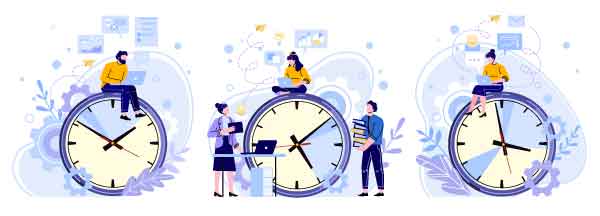As a game design/cinematics professor, I frequently hear students say that they “wish they could…” followed by one of the following
- be more artistic
- program
- draw
- were better with (name of specific software)
- were better with shaders
- understood (name a process) better
The list goes on and on. One thing I’ve noticed over my (many) years, is that these same students are usually talented in another area. Frequently, those who wish they were more artistic are good programmers, or those who wish they were better programmers, are very artistic.
When I ask them how many hours they put into a project, generally the numbers are very similar.
Those who program put in 8 to 10 hours on a single program.
Those who made a great character or piece of art, put in a similar amount of time.
Do you see where I’m going with this?
It takes time. A LOT of time to become good at something. It is very rare to have skills in multiple, divergent areas. If someone is good at something, it is because they have an interest AND they invest the time to become good at it.
When I first started programming, I was not very good at it. I made many false assumptions and conclusions, that were eventually corrected because I wanted to know more. I wanted to understand how things worked and to get better at it.
At the same time as I was learning to program, my wife was in art classes, gaining fantastic skills. She put in the time to become an artist (and help me to appreciate art). I put in the time to become a programmer (and helped her with technology).
Later in life, I wanted to become a teacher. To begin with, I wasn’t very good. My lessons were too short and lacked the details that more experienced teachers helped me to correct. After thousands of hours of reading about teaching, practicing teaching, and studying teaching, it has become second nature, and, I like to think, I’ve become a much better educator.
Malcolm Gladwell discusses the principle of 10,000 hours of practice to become an expert in something in his book Outliers. This works out to 40 hours a week, 50 weeks a year, for 5 years to gain the distinction of ‘expert’. Fortunately, we have a valuable and marketable skill far before we reach the 10,000-hour mark.
I started programming at the age of 14. By the time I finished high school, I had at least 4,000 hours invested in developing my programming skills, which then helped me pay for college (and made the programming courses that I took in college a lot more enjoyable).
It takes time and effort to become good at something. While it is normal (and good!) to appreciate the talent of others, recognize your own preferences, and lean into them. If you would rather spend your time drawing than programming (or vice versa), you probably have a good idea as to your career preference. That doesn’t mean you can’t or shouldn’t do something that you are interested in learning more about. Recognize your own interests and pursue them.
On the same note, if doing something makes you miserable, STOP!
I don’t mean the “I’m not good at this, I give up.” You will get better.
I mean the “I would rather do anything else besides (insert activity here).” If you don’t enjoy it, you won’t get better at it because you will always find something else to do instead.
A little advice from someone who’s been there (and is still trying to develop his artistic skill), focus on your passion and interests. While they may change as you age, you should enjoy what you are interested in doing. Life is short, enjoy what you are passionate about.
